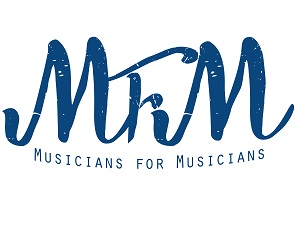Entertainment Attorney Steve Gordon in conversation with Sohrab Saadat Ladjevardi
Review and photos by Dawoud Kringle
On Thursday, October 19th, 2017, the latest installment of the MFM Talk Series was held at WeWork Wall Street, NYC. This installment featured the celebrated entertainment lawyer/author Steve Gordon.
Steve Gordon is an entertainment attorney with over 20 years of experience in the music industry, including 10 years as Director of Business Affairs for Sony Music, attorney at a law firm representing Atlantic and Elektra Records, and in-house music counsel for a Hollywood Studio. His current and recent clients include MTV, Music Choice, Time Life Films, and Soul Train Holdings; record labels such as Smithsonian Folkways and Shout Factory; Television Services such as PBS, Maryland and Louisiana Public Broadcasting; and established as well as up-and-coming artists, producers, indie labels, and managers.
 Gordon operates a music clearance service for producers and distributors of documentaries, concert videos, feature films, home video, audio compilations, and both streaming and interactive music based websites and apps. His practice also includes serving as an expert witness in music business and digital entertainment cases counseling producers of and participants in reality TV shows, registering trademarks and copyrights, and advising on copyright and contract litigation.
Gordon operates a music clearance service for producers and distributors of documentaries, concert videos, feature films, home video, audio compilations, and both streaming and interactive music based websites and apps. His practice also includes serving as an expert witness in music business and digital entertainment cases counseling producers of and participants in reality TV shows, registering trademarks and copyrights, and advising on copyright and contract litigation.
The talk centered around Gordon’s new book The 11 Contracts That Every Artist, Songwriter, and Producer Should Know.
(Attention please, here’s the publisher’s discount offer: backwingstore.com/11contracts)
 MFM founder Sohrab Saadat Ladjevardi opened with some autobiographical information that led to the founding of MFM. He spoke about MFM’s mission to empower a fragmented community of musicians. He also welcomed legendary jazz musician Jimmy Owens and later in the evening Wynton Marsalis’ drummer Ricky “Dirty Red Gordon.
MFM founder Sohrab Saadat Ladjevardi opened with some autobiographical information that led to the founding of MFM. He spoke about MFM’s mission to empower a fragmented community of musicians. He also welcomed legendary jazz musician Jimmy Owens and later in the evening Wynton Marsalis’ drummer Ricky “Dirty Red Gordon.
Saadat then asked Gordon why the 11 contracts. Gordon pointed out that the 11 types of contracts are the most common and important aspects an artist will encounter. It was written largely from, and geared to, the perspective of the artist.
Gordon spoke of specific examples he’d encountered in his experience as an entertainment lawyer of how these contract types apply to real life situations. He knows how unfair the contracts can be to an artist, and went to great lengths to explain how an entertainment lawyer serves the function of interpreting music contracts of all varieties, and protecting the legal interests of their clients.
He spoke of some of his experiences with things like music licensing, video productions that violated corporate branding, and supervising litigation. These were the type of anecdotes that can only come from training, a natural aptitude for one’s profession, and hard earned experience.
After pointing out how expensive litigation is, he got down to going through the 11 contract types.
For example, there are “Management Contracts.” The most important element of a management contract is duration: the duration of a contract and the goals of the management are to be well defined. He spoke about how a good manager won’t want you unless he / she sees that you’re going to be successful. There’s also the “sunset provision:” which protects the artist from managers who could theoretically leech revenues from the artist and/or record company indefinitely.
When discoursing on production company deals, the subject of “the Contract from Hell” was examined. Some production companies masquerade as a label. They do not function as one, and cannot offer the benefits of a label. Sometimes they will present an agreement that locks the artist into a long term deal. This deal can also make the production company the artist’s music publisher, and takes a substantial cut of all the income that the artist may make in every aspect of the entertainment business.
Saadat addressed the question of how this information affects the DYI/independent artist. Gordon gave many examples of how to apply these ideas to the independent artist. He spoke of publishing, and other examples of how the independent artist’s interests overlap with those of labels, etc, (such as licensing, sync deals, etc.)
Gordon touched briefly on performance contracts, and essential things artists can do without the services of an attorney. He also spoke about performance rights organizations such as ASCAP, BMI, and SESAC. Jimmy Owens pointed out that SESAC is the best for jazz musicians.
The floor was opened up for questions. Things got lively as subjects like performance rights organizations, how artists are paid, endorsement deals, and other relevant topics were bantered about.
The event was closed with a brief statement by Saadat, and a musical performance by Kaveh Haghtalab on the Persian kamancheh. He offered a piece in Dastgāh-e Māhur (one of the seven dastgahs in Persian classical music). It was a brief, and very poetic piece, with some subtle and beautiful colors that wove their way in and out of the music.
This installment of the Talk Series was clearly indicative of the progress MFM is making in addressing the real life needs of the professional musician.





